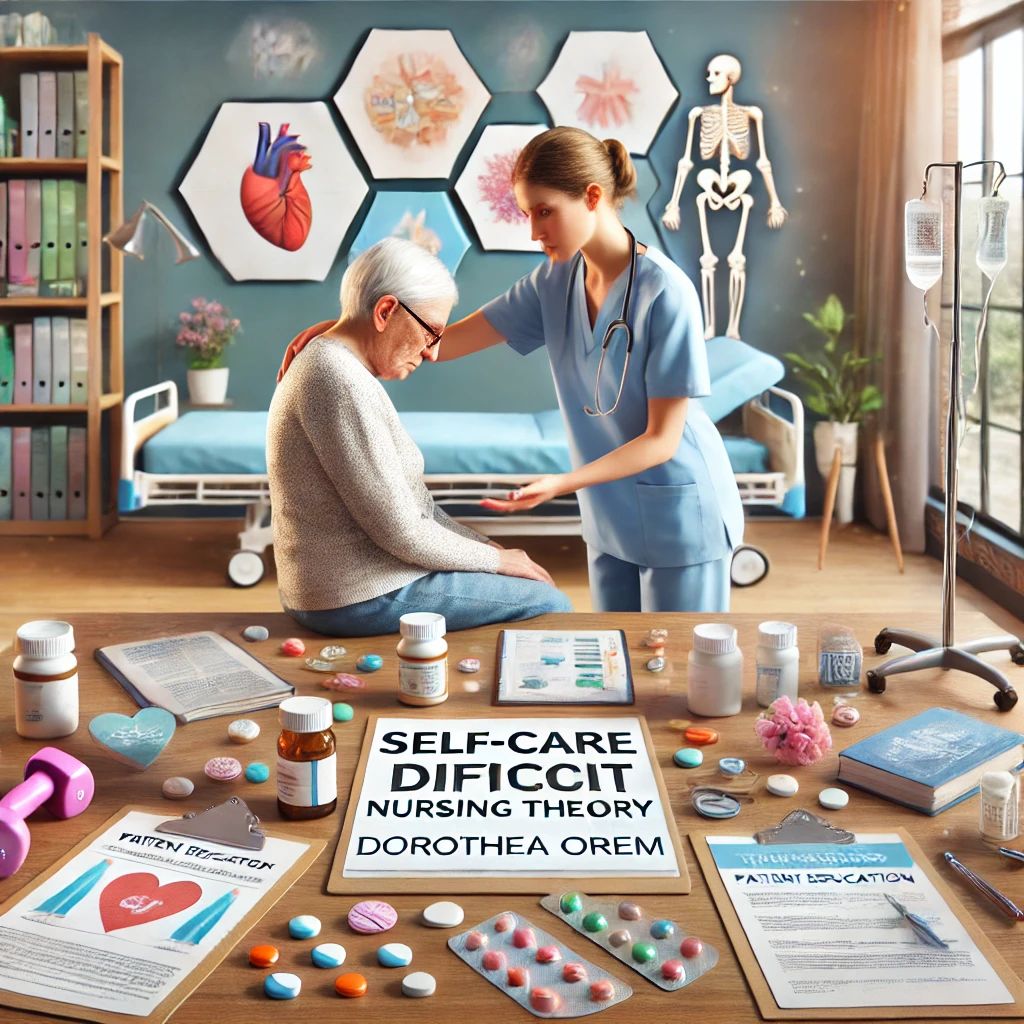
Dorothea Orem, one of the most influential figures in nursing, developed the Self-Care Deficit Nursing Theory (SCDNT) to emphasize the essential role of self-care in maintaining health and well-being. Her theory is widely applied in nursing practice today and offers a framework for understanding the relationship between patients, nurses, and self-care. Orem’s theory centers around empowering patients to take an active role in their own care, promoting independence, and improving overall health outcomes.
In this article, we’ll explore Orem’s Self-Care Theory, its relevance in nursing, and how it applies to both healthcare and personal well-being in a modern context.
1. Understanding Orem’s Self-Care Deficit Nursing Theory
Why It Matters: Orem’s theory highlights the importance of self-care as a fundamental part of healthcare. It is based on the belief that patients can recover more effectively and maintain better health when they actively participate in their own care. This theory has shaped how nurses provide care, focusing not only on treating illness but also on educating and empowering patients to manage their health.
Core Concepts of Orem’s Theory:
2. The Role of Nurses in Supporting Self-Care
Why It Matters: Nurses play a critical role in applying Orem’s theory to practice, particularly in assessing a patient’s ability to perform self-care and providing the appropriate level of support. This approach encourages patient autonomy and helps improve health outcomes by teaching individuals how to care for themselves.
Nurses' Responsibilities in Orem’s Framework:
3. Empowering Patients Through Self-Care
Why It Matters: Empowering patients to take control of their health is central to Orem’s theory. By equipping individuals with the tools and knowledge they need to perform self-care, nurses help patients build confidence and independence. This empowerment can lead to improved patient outcomes, faster recovery, and a higher quality of life.
Benefits of Patient Empowerment:
4. Orem’s Theory in Modern Healthcare
Why It Matters: Orem’s Self-Care Deficit Nursing Theory remains highly relevant in today’s healthcare environment, particularly as healthcare systems shift toward more patient-centered models of care. With the growing emphasis on patient education, preventive care, and chronic disease management, Orem’s principles are integral to modern nursing practice.
Applications in Modern Nursing:
5. Self-Care and Personal Well-Being
Why It Matters: While Orem’s theory was developed for nursing, its principles can be applied to personal self-care routines outside of clinical settings. Understanding the importance of self-care in daily life—whether for managing stress, maintaining physical health, or supporting mental well-being—can enhance quality of life and prevent health issues from arising in the first place.
Personal Self-Care Strategies:
6. Future Directions for Orem’s Self-Care Theory
Why It Matters: As healthcare continues to evolve, the principles of Orem’s Self-Care Deficit Nursing Theory will remain relevant, particularly in areas like telemedicine, remote patient monitoring, and personalized care plans. Nurses and other healthcare providers will need to adapt these principles to new technologies and changing patient needs.
Potential Future Applications:
Conclusion
Dorothea Orem’s Self-Care Deficit Nursing Theory continues to shape the way nurses care for patients by emphasizing the importance of patient autonomy and self-care. This approach not only improves health outcomes but also empowers individuals to take control of their well-being. Whether applied in healthcare settings or daily life, the principles of Orem’s theory highlight the vital role of self-care in achieving and maintaining health. As healthcare evolves, Orem’s ideas will remain central to nursing practice, providing a foundation for patient-centered care and improved quality of life.


